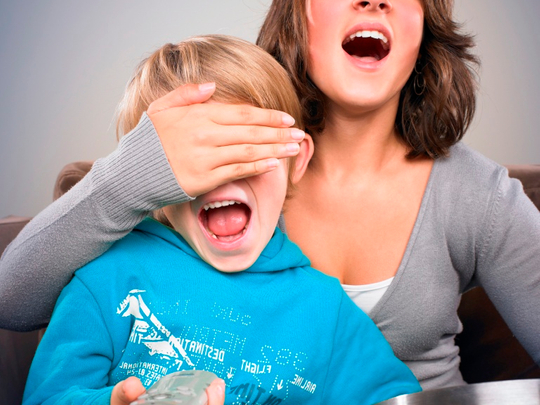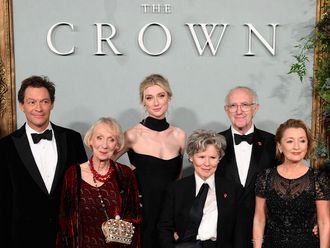
This is something I do more often than I would like to. I rely on smartphones, tablets and TV to babysit my children when I am busy.
How much television do you allow your children to watch? “I sometimes have the TV on for my children, but I try to limit their viewing,” says Catherine Rankin Harper, mother to three-year-old William and two-year-old Elin. “I try to make sure the shows we watch are fun and educational,” adds Harper.
Without supervision, children are vulnerable to explicit content, which can affect their natural development. “As they are still developing analytical and logical skills, they can be easily influenced by content that is unsuitable for their age, making it hard for them to differentiate between fantasy and reality,” says Devika Singh, a licensed psychology consultant at the Dubai Herbal and Treatment Centre.
It is necessary for parents to find out what role they want the electronic media to play in their home and set guidelines accordingly. Agrees Dr Saliha Afridi, Clinical Psychologist and MD, The Lighthouse Arabia, a community mental health clinic, “It is likely that the values projected on to kids through popular media are not consistent with the values parents want for their children.”
But, not all TV shows are bad and television in moderation can be a learning tool for children. The American Academy of Pediatrics recommends limiting use of TV and computer to two hours a day.
Too much TV can affect a child’s social skills. “When a child interacts with others, he learns to navigate and gain control of his social environment. Not only do children who watch too much TV have poor social skills they also have more health problems,” says Dr Afridi.
Extra-curricular activities can help children enhance their knowledge and develop new interests.
“Instead of putting limitations, engage them in exciting activities, which would restrict their TV time. When my sons were growing up, I encouraged them to read books and learn music and art. We went for picnics to fill their days with thrilling, age-appropriate activities,” says Ritu Motial, a strategy consultant in a Dubai-based health-care firm and a transformation facilitator.
An effective strategy to deal with the excessive use of TV in children is to keep the communication open. Make them understand that TV should act as a platform for meaningful exchange of information and creativity and overexposure can affect their development.












